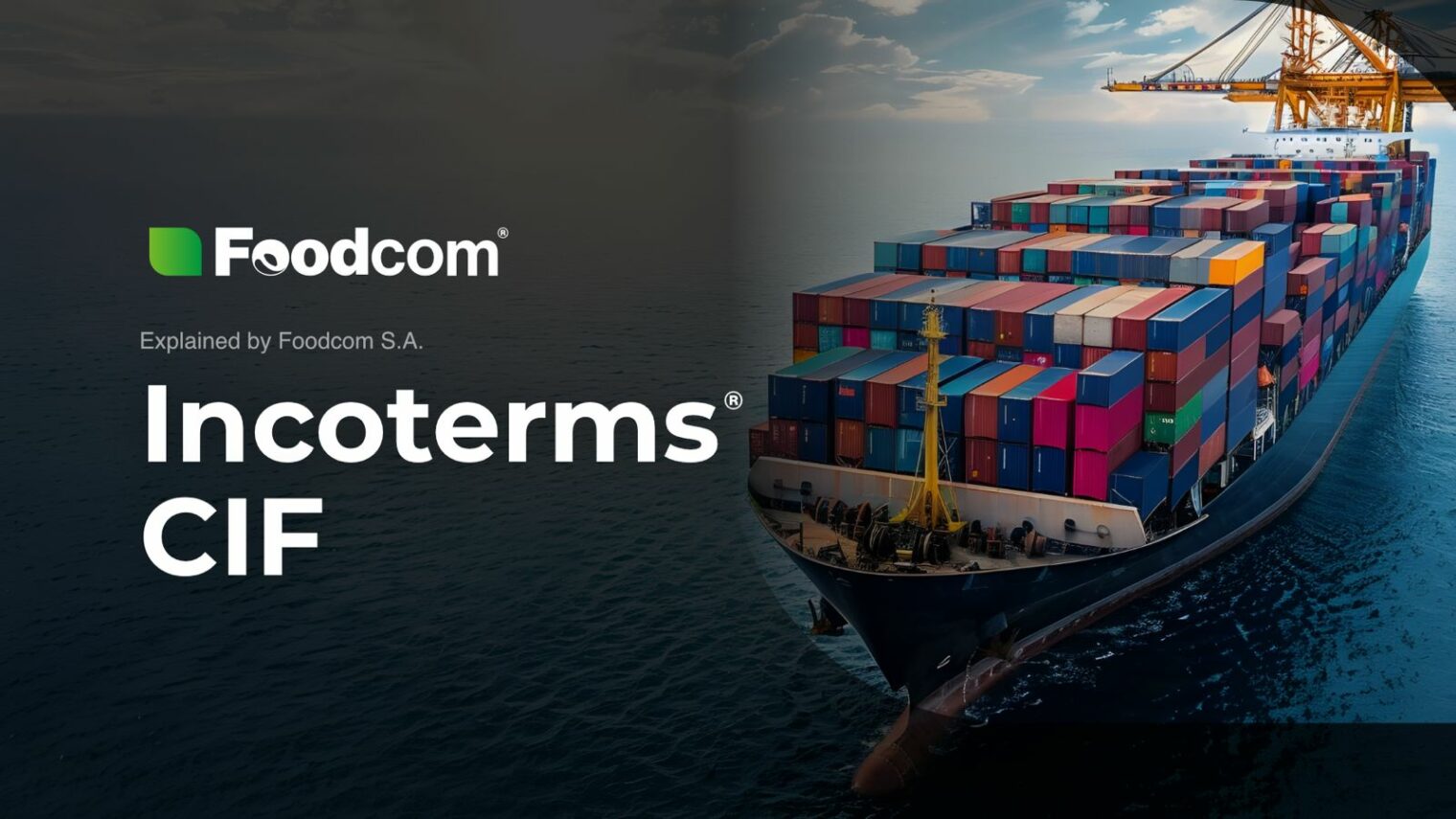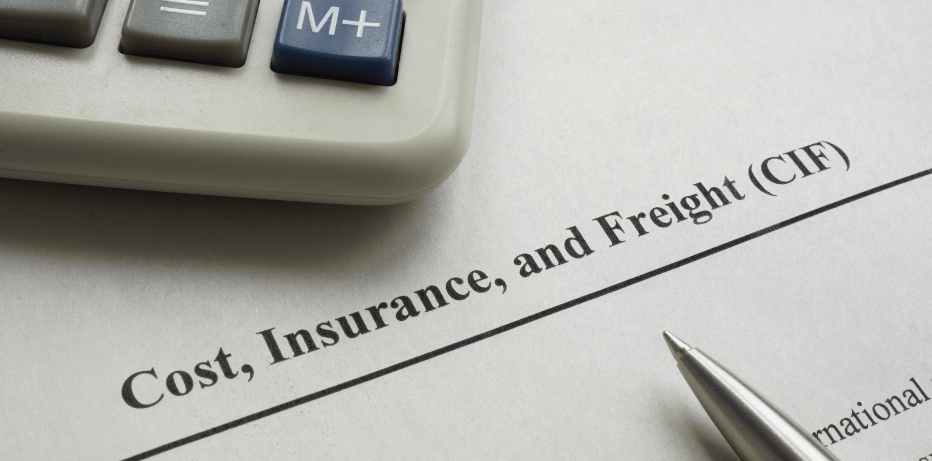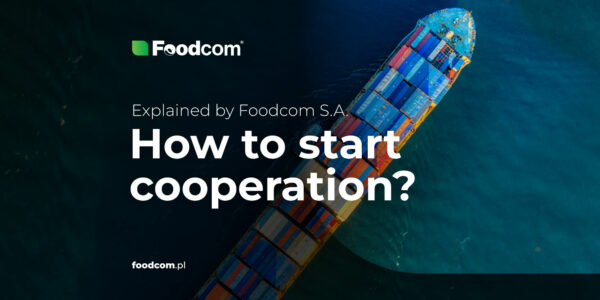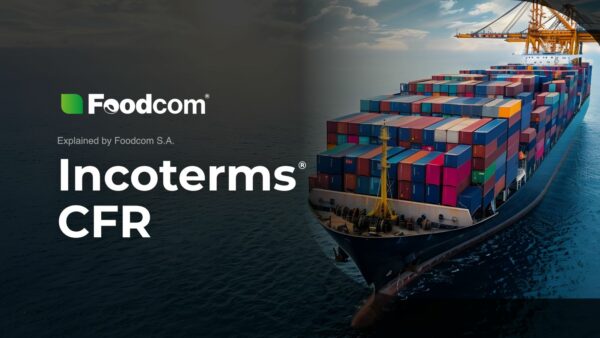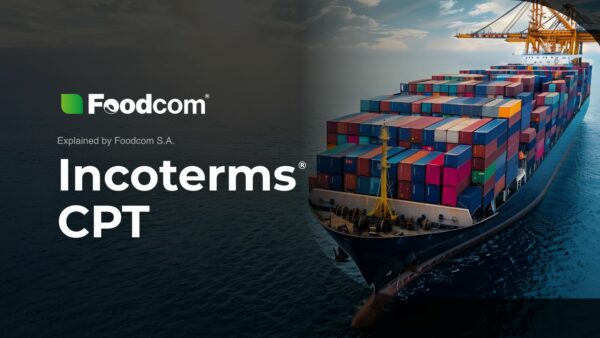- Incoterms are clauses that facilitate trade around the world.
- According to the rule CIF (Cost, Insurance and Freight), the seller bears the cost of delivery and must also pay for insurance.
- The risk is already transferred to the buyer when the goods are loaded onto the ship at the port of origin.
The Incoterms rules define the conditions for international trade and provide information on the division of costs and responsibilities between buyer and seller. One of the oldest rules is CIF. Want to learn more? Read on!
What are the Incoterms rules?
The name Incoterms comes from International Commercial Terms. They are international trade terms established by the International Chamber of Commerce to facilitate trade around the world by specifying the division of costs and responsibilities between buyer and seller. They are constantly updated, and the current version is from 2020. The Incoterms are divided into groups C, D, E and F.
CIF Incoterms: what does it mean?
Incoterms CIF belong to group C, and their name is derived from the English Cost, Insurance and Freight. They apply only to goods shipped by sea and inland waterways. The rule CIF states that the seller bears the cost of insurance and freight during transit, while the buyer assumes responsibility for the cost and all obligations once the freight is delivered at the port of destination.
CIF Rule: Terms of Delivery
Under the CIF rule, the seller takes care of delivering the goods to the port of origin and insuring the goods. The buyer, on the other hand, assumes the obligations and costs once the goods are delivered to the home port. Moreover, the risk is transferred to the buyer when the goods are shipped.
Sharing of costs
The seller bears the costs:
- delivery of the goods to the ship in the port of origin,
- preparation and dispatch of the commercial invoice,
- obtaining an export license,
- conclusion of the contract for the transport of the goods to the port of destination,
- insurance,
- packing and labeling,
- notification of the buyer e.g. about the delivery of the goods to the port of origin,
- verification of the quality of the goods.
The buyer, on the other hand, must pay for the costs:
- notifying the seller of the requested delivery date and place,
- obtaining an import license,
- inspection of the goods before shipment,
- taxes and duties related to transit and importation,
- all costs not covered by the contract or which are not freight but are related to the goods during transportation from the port of origin.
Division of responsibilities
The seller is responsible for: concluding a contract for the transportation of the goods, paying the freight, loading the goods on the ship, concluding an insurance contract, and delivery to the buyer and clearance for export.
The buyer, on the other hand, is responsible for: informing the seller of the intended port and delivery date, paying the costs of obtaining the certificate of origin, consular documents and import duties, organizing the import clearance.
Time of transfer of risk
The risk is transferred to the buyer when the goods are loaded onto the ship. If a situation arises where a claim must be made, the buyer is responsible – he must file his claim with the seller’s insurance company.
Forms of transportation
The CIF rules apply only to the transportation of goods by sea or inland waterways. They do not apply to combined transportation, i.e. the use of more than one means of transportation.
What to consider when choosing Incoterm CIF?
Note that the Incoterm CIF applies only to goods shipped by sea or inland waterway. It is worth choosing this rule if the buyer does not want to bother with freight or insurance costs. However, the seller must remember that he then bears the freight costs, but the responsibility for all risks lies with the buyer.
CIF vs. other rules
The CIF rule is often compared to the CFR rule because they are very similar. Actually, the only difference is that according to the rules of the CIF rule, the seller is obliged to insure the goods for the benefit of the buyer.
The FOB (Free on Board) rule can also be applied to the transportation of goods by water. The main difference between the two is that in CIF contract the seller is responsible for the goods during transportation, while in FOB the buyer is responsible for the goods during transportation.
Trade with Foodcom S.A.
Incoterms rules may seem complicated at first sight, but cooperation with Foodcom S.A. will significantly simplify the whole trading process. Our sales team will select the best method of transportation in consultation with the experienced specialists of our logistics department. Cooperation with our sales support department guarantees that the transaction will take place in optimal conditions and that the expectations of Business Partners will be met. At Foodcom S.A. we are able to comprehensively implement even the most demanding transactions, and the entire process runs smoothly and according to plan.

